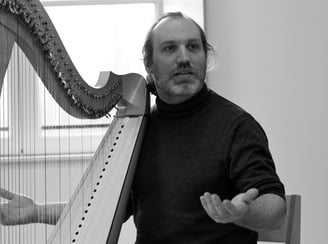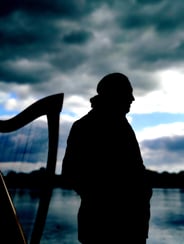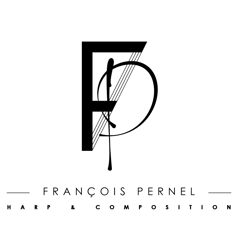About me
Although my musical education is rigorous, having won a gold medal in harp at the Reims Conservatoire, the music I propose in these collections is often rooted in the intuitive and the spontaneous. My compositions explore a variety of rhythmic exercises and stripped-down melodies, characterised by a minimum of indications of nuance or phrasing.
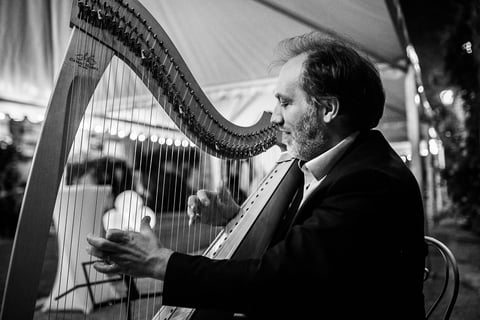

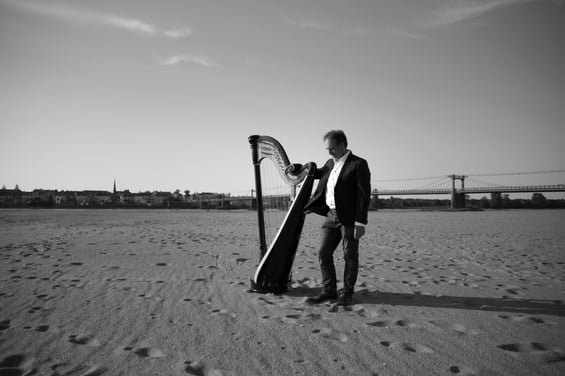

When it comes to composition, my guiding principle is that music belongs to simplicity. Simplicity is perhaps the opposite of simplism. Simplism is desperate to get rid of complexity and effort. Simplicity, on the other hand, seeks to condense meaning with a minimum of means, to find the tenuous line of balance from which subtle freedom and expression are possible. The great performers know how to make even the most complex, fast-moving pieces simple and obvious to listen to, and the great composers know how to reveal depth in just a few notes.
Over time, you hone your sound palette and move away from showboating. What's more, I don't subscribe to the musical tradition of cutting ourselves off from our heritage - or at least pretending to do so. We are first and foremost the product of all the influences we have received. The natural is only the sum of all the cultural. So I have no qualms about openly drawing inspiration from a composer, a genre or a style. I don't do it in an ‘intelligent’ way, but in an empirical, intuitive way. For me, composing is the place where enjoyment comes before understanding. So in my compositions you'll find a tribute to Chopin, a nod to Messiaen and ballads that could have come straight out of an 80s jukebox.
I fully embrace this American-style "salad bowl". For me, music isn't compartmentalised into mainstream music, traditional music and variety music. There are different techniques in different places, and the fact that I've explored all these different facets means I can't see any kind of hierarchy.
The fact remains that most of these pieces were born out of pedagogy.
Copying the masters seems to me to be just as important as playing scales. But there's one essential point I'd like to make clear: copying Ravel, Debussy or Satie is not just a matter of rationally understanding the elements of their language, but of immersing yourself in their music and the freedom it contains. This process of immersion is the same as that required to learn to play traditional Irish, Breton or even Baroque music. You can read the treatises and annotate the scores as much as you like, but there's no substitute for immersion by ear or by body (in the case of dance); the score always offers only a minimum of information, and the rest of the way is to be found in the way you place two notes that love each other together, as Mozart would say.
